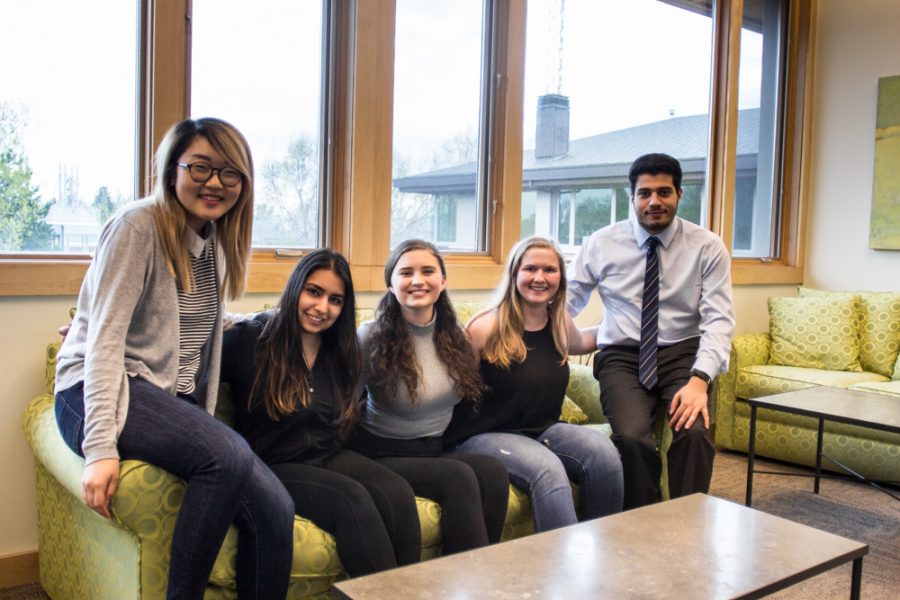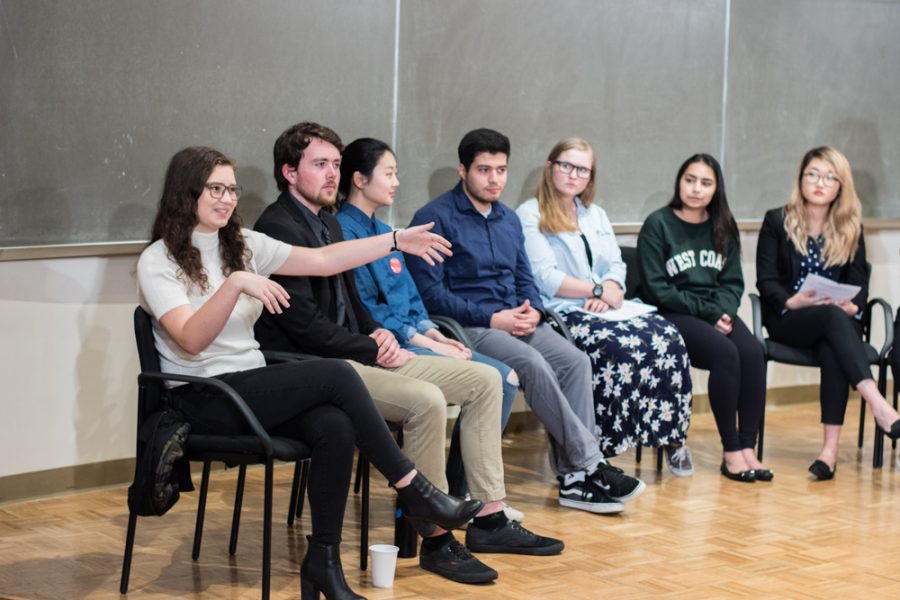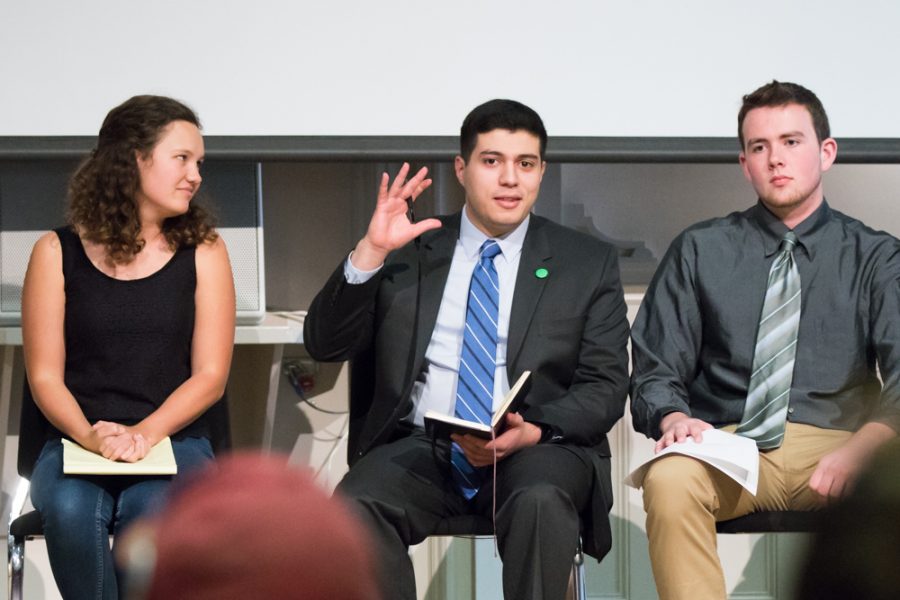A proposed resolution calling for changes to Whitman’s Title IX and sexual assault policy will be discussed by the ASWC Senate on Sunday, Feb. 1. The resolution was written collaboratively by leaders from the college student body who formed the It’s On Whitties committee this fall to discuss sexual violence on campus.
The proposed resolution on sexual assault is the direct result of discussions and compromises between representatives from student groups, including members of ASWC, Feminist Advocating Change and Empowerment (FACE), men’s and women’s fraternities, athletic teams and All Students for Consent (ASC). The decision to draft a resolution was made after student leaders participated in a conference call with Washington, D.C. in the fall about the It’s On Us campaign organized by the federal government.
“After the conference call [with It’s On Us], we realized there was a lot of momentum that came from it and that we were interested in pursuing the issue further, and because we represented different facets of the campus community we thought that all of us together could come up with a comprehensive way of addressing the issue of sexual violence on campus,” said ASWC vice-president senior Sayda Morales, who co-chaired the committee alongside senior ASWC senator Corinne Vandagriff.
Though an initial draft of the resolution was presented to the senate in December, it was tabled due to a perceived lack of clarity. Structural revisions are nearly complete, and a new draft containing similar content in a clearer format is expected to come before the senate this Sunday.
“[The resolution] hasn’t been approved by the student affairs committee, which means anything could change, but I think [ASWC representatives] are fairly happy with the version as it is right now,” said Vandagriff. “We just need to make sure that it’s as clear as it needs to be and organized as well as it could be, and then think of any possible omissions or additions we may approve.”
The resolution presented on Sunday will likely include many of the proposals from the draft submitted in December. Of those proposals, certain changes were easily agreed upon by the It’s On Whitties committee, such as changing the language of the Sexual Assault Policy to be inclusive of different genders and sexual orientations.
Others, particularly those concerning Title IX and sexual assault investigations, were more difficult to decide. The committee eventually agreed on a number of proposals for changes to the policy, including the addition of a second investigator in investigations of sexual assault, expanded appeals process and an expansion of the current definition of “incapacitated” used by the college.
“People have different ideas of how the [investigative] process can best work, but ultimately we did come to a consensus towards the end [of last semester]. That isn’t to say that the resolution isn’t going to be controversial. There are still components where not everyone 100 percent agrees, but it’s the best compromise we could come up with,” said Morales.
The draft of the resolution presented to the ASWC Senate in December also calls for the faculty to vote to remove the sexual misconduct policy from the Faculty Code so that jurisdiction may be transferred to the administration and the recommendations made in the rest of the resolution may be implemented more easily.
“This is definitely a change I would welcome. Such a change would allow us to be more responsible, accountable and nimble in response to not only changes to the legal and regulatory environment, but more importantly to concerns voiced by the population the policy is designed to protect and support: the students,” said Associate Dean of Students and Title IX Administrator Juli Dunn in an email to The Pioneer.
Should the faculty transfer jurisdiction of the policy to her office, Dunn plans to form a group of people to decide on future revisions to the Title IX/Sexual Assault Policy, including members of the Title IX team, which is responsible for investigating Title IX violations under the current policy, and members of the Council on Student Affairs, which is responsible
“I don’t think any policy writing or revision should ever fall to a single person or occur in a vacuum. Changes to this particular policy are going to require a team approach,” said Dunn in an email to The Pioneer.
While ASWC does not have the power to formally carry out the suggestions laid out in the proposed resolution, its influence with the administration and governing boards may lead to at least some of its suggestions being implemented in the next year.
“In the last couple of years, ASWC legislation has had a good level of success in implementing changes,” said junior Jack Percival, who serves as ASWC’s faculty liaison. “I don’t think I can say for sure what level of success this [resolution] will have, but we have had success in the past.”








